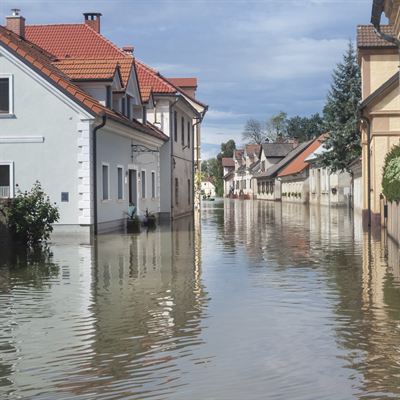Insurers Offer Advice to Flood Victims in Florida

TALLAHASSEE, Fla. — The Property Casualty Insurers Association of America (PCI) today urged property owners to take precautions to protect themselves and their belongings as heavy rains hammer portions of Florida.
“Insurers are here to help in the recovery process and assist families and businesses file claims,” said Logan McFaddin, PCI’s regional manager. “It’s important to prepare for more flooding as we continue through the spring and summer months. Make sure to review your insurance policy, take a home inventory, and keep your insurer or agent’s number handy.”
Once you file your claim, there are several things you can do, such as photograph the damage and make an inventory of what was lost and damaged to help expedite the recovery process.
“If your vehicle was damaged in the recent rainstorms, contact your insurance company or agent immediately to see if you have coverage,” said McFaddin. “Water damage to a vehicle is typically covered under an auto policy’s comprehensive insurance coverage. In addition, it is important that you do not drive in rushing water. Remember to ‘turn around, don't drown.”
If your home is near water or in a low-lying area, make sure you are alert to rising water and seek higher ground if necessary. While the standard homeowners policy covers damage from a wide variety of events including strong winds caused from a hurricane or tornado, it does not cover flooding. This coverage is purchased through the National Flood Insurance Program and must be purchased as a separate policy. Residents should be aware that new flood policies typically take 30 days before they go into effect.
“This round of storms serves as a good reminder that we are in hurricane season,” said McFaddin. “We encourage all those living in hurricane prone states, to take time to get prepared and make sure you have the right amount of coverage.”
3 Things to Know:
1. How do you purchase flood insurance?
You can buy flood insurance through your agent or the National Flood Insurance Program (NFIP), which is managed by the Federal Emergency Management Agency or FEMA. You can call NFIP 888-379-9531 or visit the website at www.floodsmart.gov.
2. Does your policy pay replacement cost or actual cash value for a covered loss?
Actual cash value takes depreciation into account. As a result, the compensation received may be much lower than the retail price of a new item. The replacement cost is the amount necessary to rebuild the home with construction materials of like kind and quality.
3. How much is my deductible?
The deductible is the amount of a covered loss that the homeowner must pay. It may be based on a percentage of the dwelling limit of the home or a fixed dollar amount. In many hurricane-prone areas, hurricane deductibles may range from one to five percent of a home’s value. The higher the deductible, the lower the premium will be.
PCI Flooding Tips Precautions:
• Review your property insurance policy, especially the “declarations” page, and check whether your policy pays replacement costs, or actual cash value for a covered loss.
• Inventory your household items, and photograph or videotape them for further documentation. Keep this information and your insurance policies in a safe place.
• Keep the name, address, and claims-reporting telephone number of your insurer and agent in a safe and easily accessible place.
• Protect your property by covering all windows with plywood or shutters, moving vehicles into the garage when possible and placing grills and patio furniture indoors.
• Keep all receipts for any repairs, so your insurance company can reimburse you.
• Check with your insurance adjuster for referrals to professional restoration, cleaning and salvage companies if additional assistance is needed.
• Make sure watercraft are stored in a secure area, like a garage or covered boat dock. A typical homeowner’s policy will cover property damage in limited instances for small watercraft, and separate boat policies will provide broader, more extensive property and liability protection for larger, faster boat, yachts, jet skis and wave runners. Additional information can be found on PCI Hurricane Headquarters or Flooding Headquarters.




